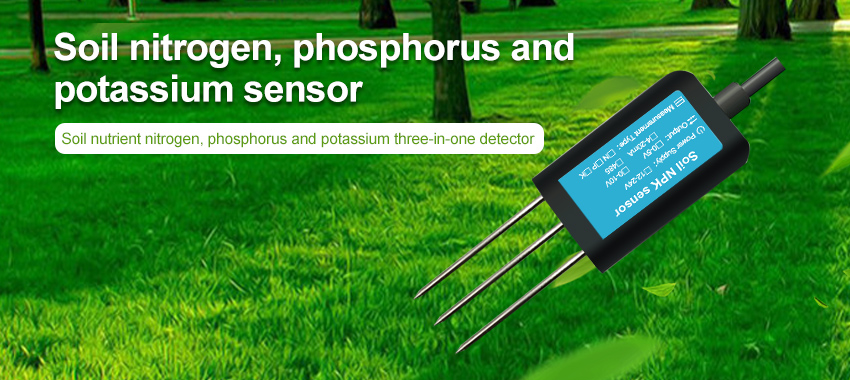Soil NPK sensor provide real-time data on soil nutrient levels and moisture content, revolutionizing agriculture. This paper discusses the significance, characteristics and benefits of using soil NPK sensor in precision agriculture.

Real-Time Monitoring and Analysis:
Soil NPK sensor offer real-time monitoring and analysis of soil nutrient levels, which allows farmers to make data-driven decisions. The sensors measure the levels of nitrogen (N), phosphorus (P), and potassium (K) in the soil, alerting farmers when nutrient levels fall below optimal levels. This data helps farmers adjust fertilizer application rates and optimize crop yields, leading to better productivity and cost savings.
Precision Fertilization:
Precision farming requires accurate and precise fertilization practices. Soil NPK sensors enable farmers to apply fertilizers at the right time, in the right amount, and in the right place. With soil sensors, farmers can identify nutrient deficiencies in specific areas of the field, and apply fertilizer accordingly. Precision fertilization can reduce waste, lower fertilizer costs, and improve crop yields.
Improved Crop Quality:
Soil NPK sensors enhance crop quality by ensuring optimal nutrient levels in the soil. The sensors help farmers maintain consistent soil fertility levels throughout the growing season, leading to higher-quality crops. By monitoring nutrient levels in real-time, farmers can also take preventive measures against nutrient deficiencies or over-fertilization, providing high-quality crops and minimizing waste.

Soil Conservation:
Efficient use of fertilizers can help to conserve soil nutrients and minimize environmental damage from excess fertilizers. Soil NPK sensors can assist in achieving these goals by optimizing fertilizer application rates based on real-time soil nutrient levels. When farmers understand the nutrient requirements of their soil, they can apply appropriate amounts of fertilizers while minimizing runoff and reducing environmental damage.
Cost Savings:
Soil NPK sensors provide farmers with cost savings by optimizing fertilizer usage and improving crop yields. By reducing fertilizer waste due to over-fertilization and correcting nutrient deficiencies, farmers can save on fertilizer costs. Also, higher crop yields can result in more significant profit margins for farmers.
Better Health and Safety:
Soil NPK sensors can also improve health and safety in agriculture. By reducing the amount of fertilizer needed to maintain soil fertility levels, farmers can reduce their exposure to harmful chemicals. Additionally, by using data-driven precision agriculture techniques, farmers can optimize crop yields without overworking the land, leading to healthier soil and a safer working environment.
Conclusion:
Soil NPK sensors have revolutionized precision farming practices by providing real-time data on soil health and nutrient levels. These sensors have many benefits, including precision fertilization, improved crop quality, soil conservation, cost savings, and better health and safety for farmers. The use of soil NPK sensors is crucial for achieving sustainable agriculture practices, ensuring food security, and addressing global environmental challenges. As technology continues to advance, the capabilities of soil NPK sensors will expand, further empowering farmers to achieve their goals of efficient and sustainable crop production.